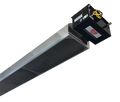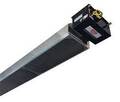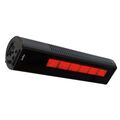- Home
- View Our Industrial Lines of Products
- Heating
- Gas Patio Heaters
Gas Patio Heaters
Choosing the right heater:
-
Consider your space:For large, open areas, gas heaters may be more suitable. For smaller, enclosed patios or spaces with electrical access, electric heaters can be a great choice.
-
Think about your budget:Gas heaters can be cheaper to run, but electric heaters may have a lower upfront cost.
-
Assess your safety needs:If you have concerns about ventilation or potential gas leaks, electric heaters are generally the safer option.
Gas Patio Heaters:
-
Pros:
- Powerful heat output: Gas heaters, especially natural gas models, provide intense and widespread heat, making them ideal for larger patios and open spaces.
- Effective in cold temperatures: Gas heaters can be effective even in very low temperatures, and some are designed for snow and ice melt applications.
- Powerful heat output: Gas heaters, especially natural gas models, provide intense and widespread heat, making them ideal for larger patios and open spaces.
- Cost-effective operation (potentially): Depending on the cost of gas versus electricity in your area, gas heaters may have lower running costs, especially if you need to heat a large area.
-
- Portability (propane models): Propane heaters offer portability and can be moved around as needed, as they don't require a permanent gas line connection.
-
-
Cons:
- Wind susceptibility: Gas heaters can be affected by wind, with flames potentially flickering or blowing out.
-
- Installation and maintenance: Natural gas models require professional installation, and propane models need frequent refills.
-
- Safety concerns: Gas heaters emit carbon monoxide and require proper ventilation, making them unsuitable for enclosed spaces.
-
- Higher upfront cost (potentially): Gas heaters can have a higher initial purchase price than electric models.
-
- Less portable (natural gas): Natural gas heaters are less portable due to their connection to a gas line.
-
Electric Patio Heaters:
-
Pros:
- Cost-effective to run (potentially): Electric heaters can be more affordable to operate, especially if you have a smaller space and electricity is relatively inexpensive.
-
- Safety: Electric heaters do not produce carbon monoxide and are generally considered safer, especially for enclosed or semi-enclosed spaces.
-
- Portability and ease of installation: Electric heaters are typically lightweight, easy to move, and plug-and-play, requiring no installation.
-
- Quiet operation: Electric heaters are generally quieter than gas heaters.
-
- No ventilation requirements: Electric heaters do not require ventilation, unlike gas heaters.
-
- Precise heat control: Some electric heaters offer multiple heat settings and can be controlled with timers or smart devices.
-
-
Cons:
- Lower heat output (generally): Electric heaters typically have a lower heat output compared to gas heaters, making them better suited for smaller spaces or spot heating.
-
- Dependence on electricity: Electric heaters require a nearby power outlet and are not suitable for areas without electricity.
-
- Higher upfront cost (potentially): Some electric heaters can have a higher initial purchase price, especially if they are high-powered models.
-
- Slower to heat: Electric heaters can take longer to heat up and may not be as effective in very cold conditions.
-
- Not ideal for wind: Electric heaters can also be affected by wind, as the heat may be dissipated more quickly.
-
 Free Standard Shipping on All orders of $100.00 or more. Fixed Shipping on Trucked Items. Continental US only.
Free Standard Shipping on All orders of $100.00 or more. Fixed Shipping on Trucked Items. Continental US only.10% off all Re-Verber-Ray Brand Products ! Use code MYBIG10
Buy Bulk 5 Items get 10% additional savings.
Call for stock availability. Same Day Shipping on orders with Rush Fee received by 3:00 PM Central Time on stocked parts.
Contractors and Wholesalers call for your discount !
1-800-434-1389
 Loading... Please wait...
Loading... Please wait...






